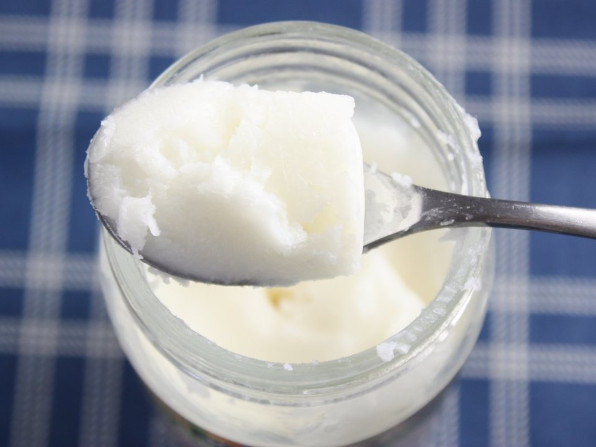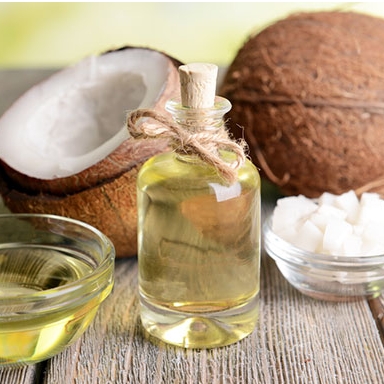Coconut Oil has been riding a wave of popularity for cooking among foodies for the past couple of years. The conventional wisdom is, it’s healthier than other cooking Fats. But the fact is, it contains far more Saturated Fat than Butter or other popular ‘heavy’ Fats, and its ill effects could be lethal…
 Coconut Oil: If a Fat is solid at room temperature, that’s a pretty good indication
Coconut Oil: If a Fat is solid at room temperature, that’s a pretty good indication
it’s high in saturated fats and, therefore, not so healthy…
Coconut Oil is touted as a cooking Fat, but it’s also claimed to be a cure for a wide variety of ills from unruly hair and mental haziness to obesity and hemorrhoids. But scientists disagree.
Dr. Karin Michels, an epidemiologist at the Harvard TH Chan School of Public Health, recently told a German medical conference at the University of Freiburg that Coconut Oil is, “one of the worst things you can eat,” and as beneficial one’s wellbeing as, “pure poison.”
Why the hard line?
Michaels points out that the many claims made of Coconut Oil’s curative powers are totally unsupported by scientific evidence, and she casts them aside as minor issues compared to the main problem she and others in the medical community see. That’s the high level of undesirable Saturated Fat in the stuff – something like 86 percent, or around twice that found in Butter, Lard or Pan Drippings.
As most of us know, by now, too much Saturated Fat is bad for you, because it leads to the formation of high levels of unhealthy Low Density Lipids (LDLs) in the blood. And that, in turn, leads to cardiovascular disease and a host of related ills.
The AHA weighs in…
The American Heart Association, in an advisory published in its journal Circulation last year, surveyed existing scientific findings about Coconut Oil and other Saturated Fats and found:
Taking into consideration the totality of the scientific evidence, satisfying rigorous criteria for causality, we conclude strongly that lowering intake of saturated fat and replacing it with unsaturated fats, especially polyunsaturated fats, will lower the incidence of CVD. This recommended shift from saturated to unsaturated fats should occur simultaneously in an overall healthful dietary pattern such as DASH (Dietary Approaches to Stop Hypertension) or the Mediterranean diet as emphasized by the 2013 American Heart Association/American College of Cardiology lifestyle guidelines and the 2015 to 2020 Dietary Guidelines for Americans.
So, why do folks still embrace Coconut Oil?
Largely, because they’ve been taken in by the tidal wave of enthusiasm generated by those who have a lot to gain from selling the stuff. Perhaps nowhere else in society are folks as susceptible to hearsay and outright fabrication than they are on topics related to food and health. How many fad diets have we seen come and go? How many wonder cures for all manner of diseases and conditions which burst upon the Net with great fanfare have then quietly faded away when they were found to be ineffective?
My take…
I have one suggestion for you, if you want to avoid Cooking Oils and Fats high in Saturated Fats: If it’s liquid at room temperature, it’s probably alright. But if, like Lard, renderings or Coconut Oil, it’s solid at room temperature, stay away from it.
Among the healthiest Oils out there are those sourced from seeds and nuts. Peanut, Sesame, Sunflower, Safflower and others are commonly available at Asian supermarkets and are becoming more generally available at mainstream supermarkets. But they tend to be expensive, which makes them unsuitable for daily cooking use.
I always keep three Oils at stove-side for cooking: Canola, the all-purpose nearly flavourless oil preferred by the restaurant industry; Olive, the preferred Oil of the Med and Middle East, for its distinctive flavour; and Corn Oil, which, besides its usefulness in baking and general cooking tasks, seems to be the every-day cooking oil preferred by Asian family cooks – if the vast quantities of it stocked by the better Asian markets are any indication.
Choose you fats carefully and don’t give in to all the hype from the so-called ‘healthy foods’ sector…
~ Maggie J.

